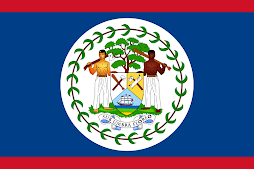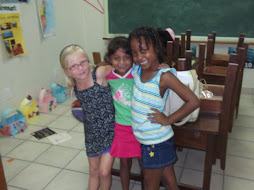
Testing for the end of the second term have started, and they are from Wednesday and will continue through Friday in the Infant I classroom. On Wednesday, the students took math and social studies. The math consisted of word problems to make number sentences, fact families, fractions, comparing fractions, measuring different lengths in inches, different measuring utensils, and clocks. Social studies consisted conservation of natural resources, what natural resources are, and transportation. On Thursday, the students took language arts and H.F.LE (their health). Language arts included spelling words in which the teacher said (five, frog, cake, chin, this, and more), sequencing/comprehension (listening to an oral story, then putting pictures in order), matching correct word to picture, fill in the blank with the correct word, and circling pictures that make the long vowel sound.

All the tests were orally given by the teacher, except the few parts that the students needed to do alone. All the students strive for the perfect 100% grade. I have heard many students talking about getting a 100%, and they became mad/upset if this grade was not obtained. One student in particular would not even take the paper home if it was not a 100%. The child would just leave his not perfect papers in the desk at school.
This notion of competition and being "the best" or getting a perfect 100% has become an abundant issue in which I have noticed. After speaking with my teacher, she told me that this is a huge part of most of the Belizean culture. Parents strive/desire for their children to be the best in the class. This aspect can even been seen in the pre-k graduation, which has a valedictorian and salutatorian as well. I am unsure why this notion is so predominate, but the teacher said it may have something to do with all kids just recently being able (or having the opportunity) to go to school. She said maybe 20 years ago, only the elite males were able to go to school. Presently, all children are suppose to be in school, but there is no one enforcing these rules.
The schools here are either government, government aid, or private. The two elementary schools we are currently in are private, which means they receive less money from the government. This requires the parents to pay more for the "tuition." The families who send their kids to Isla Bonita and Ambergris Caye are considered middle class here. Most of them are local business owners or some part of tourism, so they can afford the extra tuition. Many students attend the Roman Catholic school because it is government aid, and the tuition is less. There are other schools on the island that are total government aid, but I am not sure of there names.
The money the private schools obtain, whether through the government or tuition, is usually not enough; consequently the schools have to do without many extra things for the school. To give you an example, on Thursday the lights were turned off at Ambergris Caye because the school is behind on paying the bills. The school just can not afford to pay the bills to keep the basic necessary essential aspects. The budget for the teachers if very minimum as well.



No comments:
Post a Comment